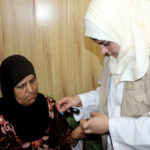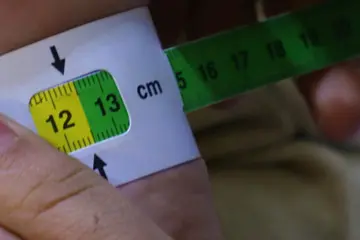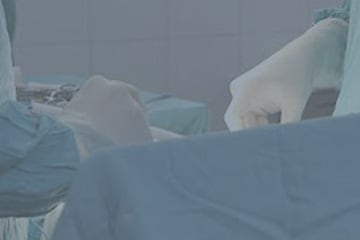November 14, 2016
World Diabetes Day – celebrated on November Fourteenth – is the world’s largest diabetes awareness campaign. Each year, events are organized to raise awareness of diabetes in more than 100 countries. This day is also a sad reminder of the plight of the refugees around the world who suffer from diabetes. These people hope to receive treatment but very few actually receive it for a variety of reasons. Displaced by war or natural disasters, they are often forced to suffer through their diabetes in silence either because of the poor medical conditions in their countries of asylum, or because they prioritize the medical needs of their children and families above their own. Diabetes is a silent killer, especially among these refugee populations.

Unfortunately, many medical relief organizations do not pay adequate attention to this deadly disease, focusing rather on providing emergency medical treatment.
There are over one million Syrian Refugees registered through UNHCR in Lebanon. Among those, it is estimated that up to one hundred thousand suffer from diabetes. This estimate is based on the prevalence rate of the disease in the Middle East, according to the World Health Organization (WHO) and the International Diabetes Federation (IDF).
This has inspired the Qatari Red Crescent and the Syrian American Medical Society (SAMS) to support a project to treat refugees with diabetes. This project, which was launched in September of this year, is active in nine locations throughout Lebanon: in the provinces of the Beka’a Valley, Mount Lebanon, Saida, Tripoli, Akkar, and even Arsal. The project provides medical support at every stage of the disease, beginning with consultations, full pharmacological treatment including all types of insulin, diagnosis and follow-up laboratory tests, and consultations if there are any further complications. All of these services are provided free of charge to over two thousand patients every month.
The project is supported by specialized staff from The Health Program, one of the programs of The Medical Access Program (MAP). The staff receives training from the International Diabetes Federation – Middle East and North Africa (MENA) region, in partnership with the Qatar Red Crescent and SAMS.
Below are shocking statistics of patients currently being treated through the project*:
*These figures were recorded two months after the project began
- 89% of patients have uncontrolled diabetes mellitus.
- 64% of patients are smokers.
- 72% of patients are obese.
- 61% of patients have hypertension.
- 71% of patients do not receive appropriate levels of physical activity.
- 51% of patients do not adhere to the recommended daily diet.
- 41% currently suffer from heart complications.
These numbers prompted us to work to make World Diabetes Day different this year for these refugees. We pledge to continue to provide these patients with free medical treatment and laboratory tests, and also to work with them to change their lifestyles. We will continue to train our staff to provide the best medical treatment in accordance with international diabetes programs. We also pledge to advocate on their behalf to raise awareness of this terrible disease. We hope that next year on World Diabetes Day we will be able to celebrate their health and restored quality of life.
Let us work together and unite our efforts to reach this grand goal and provide treatment to these refugees in need.
Written by the Diabetes Project Team in Lebanon



